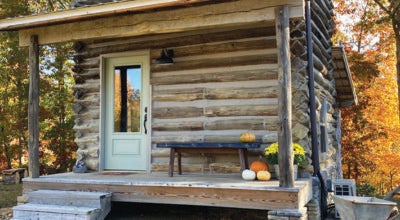The Literary Corner: Renegade Writers Guild
Published 8:54 am Thursday, July 27, 2017
“Thank you, Mocksville!”
By Marie Craig
I just returned from a two-day visit to Columbia, S.C. It has grown into a big city with much traffic, impatient people, and rude drivers. As I made my way through the busy streets and interstates, I was amazed at the people who blew their horns for no reason and cut into traffic so close that it was hair-raising. Cars would dart between other cars to go two lanes over when it seemed there couldn’t possibly be room for them to fit between.
I drove into Mocksville this morning and breathed a sigh of relief. Sure, the streets are being dug up right now to improve our water supply, but it’s a pleasure to drive carefully and safely near other polite drivers. As I travel through the historic districts, I enjoy seeing the beautiful, old homes. They give Mocksville a wonderful character of Southern charm of a small city.
My grandson comes to visit and tells me that he thinks I live in Mayberry. So be it. It’s fine with me. Small towns are wonderful; when you go to the library or to a restaurant, you know lots of people there.
I hadn’t realized how much I enjoy living here until I went down to hot, humid, and rude Columbia.
“Grandpa Fulk”
By Gaye Hoots
When I think of my maternal grandfather I picture his broad smile. That was always the first thing I saw, along with the twinkle in his eye. He always brought a small bag of candy when he and Grandma came to visit and always kept a small stash at their home. He carried a pocketful of candy to church each Sunday.
Mother told us that when he was a young man he was a loving father but also a stern disciplinarian. This was hard to picture because by the time we were school age my grandmother was taking charge.
Grandpa came from farm stock, and he raised his family on a farm. The whole family knew the value of hard work, including my mother, the only girl in the family. They all attended a nearby Friend’s Church. My grandmother was only sixteen when she married him and moved to his farm. She lived there until she died just a few months shy of one hundred years.
One of the things Grandpa enjoyed most was teasing Grandma. She did not always appreciate his humor. When they were in their early eighties, they went fishing at a nearby lake. The lake joined two counties. They had a fishing license for the county they lived in. Grandma had wandered to the opposite side to see if the fish were biting there. A game warden approached Grandpa and checked his license. Grandpa told him he was sure the woman fishing across the lake did not have a license. He probably thought the game warden would play along, but instead, he issued Grandma a citation. Grandpa loved to tell this story. Grandma’s retort was, “I don’t know why you find that so funny when you were the one to pay the fine!”
Grandpa set a good example by the way he lived his life. I don’t remember any questionable behavior. They raised five boys and my mom on their farm. During WWII, three of their sons served. The oldest of the three was a glider pilot. He died the day after D Day. The next year, I was born on his birthday, July twentieth.
My grandparents had twelve grandchildren. They attended special events in which we participated. Two of my cousins played football. They would attend games taking a quilt to keep them warm and parched peanuts to snack on. They had a strong abiding love. They celebrated each great grandchild, and my grandmother lived to see five generations, one of which was my oldest granddaughter.
As my grandfather aged his vision decreased, and his judgment was sometimes questionable. Grandma was eight years younger, so she tried to look after him. Once, when he wanted to visit us and go fishing, he asked a neighbor’s son to drive them. They made it from Pinnacle to Advance but were stopped on the way home because the boy was too young to have a permit or license. Another time they were shopping for groceries, and he got lost. Grandma would have him hold the handle of the grocery cart to keep him near her. Somehow he turned loose of her cart and was out of sight when she realized he was gone. Grandpa had somehow attached himself to another cart and pushed it through the checkout lane and into the parking lot. The attractive young lady whose cart he was pushing had allowed him to get into her car. She was looking around helplessly when Grandma claimed him. Grandma said she wasn’t convinced he was really that blind because he had left with the best looking woman in the grocery store.
The loss of vision eventually cost him his life. Grandma watched him closely but did allow him to walk to the end of their drive which was in sight of their house. One evening she could not find him and began a search. He had gone into the pack house on their property. He could smell the tobacco but had not seen the trap door was open. When she found him he said, “I’m afraid I have killed myself.” He died shortly following his injuries.
He was eighty-nine, and Grandma was eighty-one. She was one of the strongest women I have known, but every time we visited for the next year, I found her crying. They had been together since she was sixteen years old, and part of her was missing. All of the memories he left with us were warm and loving.
“The Penny”
By Shannon Grimes
Standing on the cement floor, with movement all around.
Boxes, material, and labels scattered, he spots it on the ground.
He picks it up, looks to her, avoiding the task at hand.
His thoughts, her being his one day, were all he could stand.
Jammed up line, lights going off, not important at the time.
He made a wish, wrapped it up tight, threw it with the dime.
She often takes it out; holding it close and tight.
Remembering the day he gave it to her, those words “it just might!”
No symbol or any gift ever meant so much.
It only takes the smallest, a glimpse and slightest of touch.
That memory so deeply cherished, valued way more than gold.
Only two know the wish made, promised to never be told.





